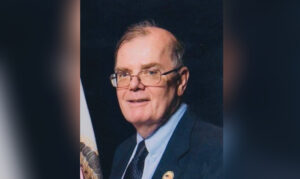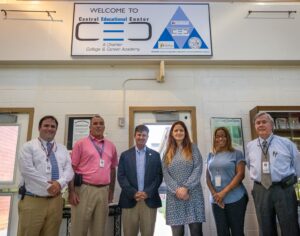Today is a “crossover day,” a critical day in the Georgia legislature. The Alzheimer’s Association’s Georgia Chapter is excited to announce that House Bill 238–which will create an optional Alzheimer’s Disease and Related Dementia (ADRD) advanced continuing education course for all first responders–has crossed over and is halfway through the legislative process. HB238 was sponsored by Representative Eddie Lumsden of the 12th District and passed the House unanimously.
“We would like to thank Representative Lumsden for his leadership and for championing this legislation that will help so many people in our state,” said Alzheimer’s Association Director of Government Affairs, Nancy Pitra.
With more than 188,000 people in Georgia living with Alzheimer’s disease and diagnoses of dementia on the rise as the population ages, there is a great need for this legislation.
“With a continually growing population of adults who live with Alzheimer’s disease or some other form of dementia, it is imperative that we take the policy steps now in order to aid and protect our future generations,” said Spencer Hardin, PhD, advocacy manager for the Alzheimer’s Association, Georgia Chapter.
18 years ago the Alzheimer’s Association helped get Mattie’s Call passed into law; a law that issues a special alert when a person with Alzheimer’s or dementia wanders and goes missing. Mattie Moore was an Atlanta resident who was found dead in 2004, eight months after wandering from her home. Six in 10 people with dementia will wander at some point, with many wandering more than once. Law enforcement and other first responders get these calls and respond. Finding a missing person with dementia takes different tactics and strategies than the search for persons without cognitive impairment. Which is why legislation is so important.
“First responders – law enforcement, firefighters, emergency medical technicians (EMTs), and paramedics are answering 911 calls involving people with dementia. Equipping first responders in Georgia with the skills needed to assess, approach andengage an individual with dementia allows them to better understand the behaviors, communicate appropriately, and de-escalate potential crises,” said Pitra. “Ultimately this not only ensures the safety and well-being of individuals living with dementia in the community but the confidence of our first responders to handle these critical situations.”
And wandering isn’t the only concern. Other instances where first responders may be called include situations like automobile accidents or erratic driving, behaviors like shoplifting or indecent exposure, and disaster response.
Thus, the Alzheimer’s Association and its volunteer advocates continue to advocate for HB238 as it makes its way to the Senate. The bill calls for the creation of an optional Alzheimer’s Disease and Related Dementia (ADRD) continuing advanced education course for first responders of all types.
The instruction will include:
- Interacting with persons with Alzheimer’s disease and related forms of dementia
- Techniques for recognizing behavioral symptoms and characteristics of dementia
- Communicating effectively
- Employing alternatives to physical restraints
- Identifying signs of abuse, neglect, or exploitation
On Thursday, February 6, more than 100 Alzheimer’s advocates attended Alzheimer’s Awareness Day at the State Capitol. Advocates spent the day meeting their representatives from both sides of the aisle at the ropes and in some private meetings, to express their need for these changes in public policy, and urged their representatives to support this important legislation.
About the Alzheimer’s Association
The Alzheimer’s Association is a worldwide voluntary health organization dedicated to Alzheimer’s care, support and research. Our mission is to lead the way to end Alzheimer’s and all other dementia — by accelerating global research, driving risk reduction and early detection, and maximizing quality care and support. Our vision is a world without Alzheimer’s and all other dementia®. Visit alz.org or call 800.272.3900.












Leave a Comment
You must be logged in to post a comment.